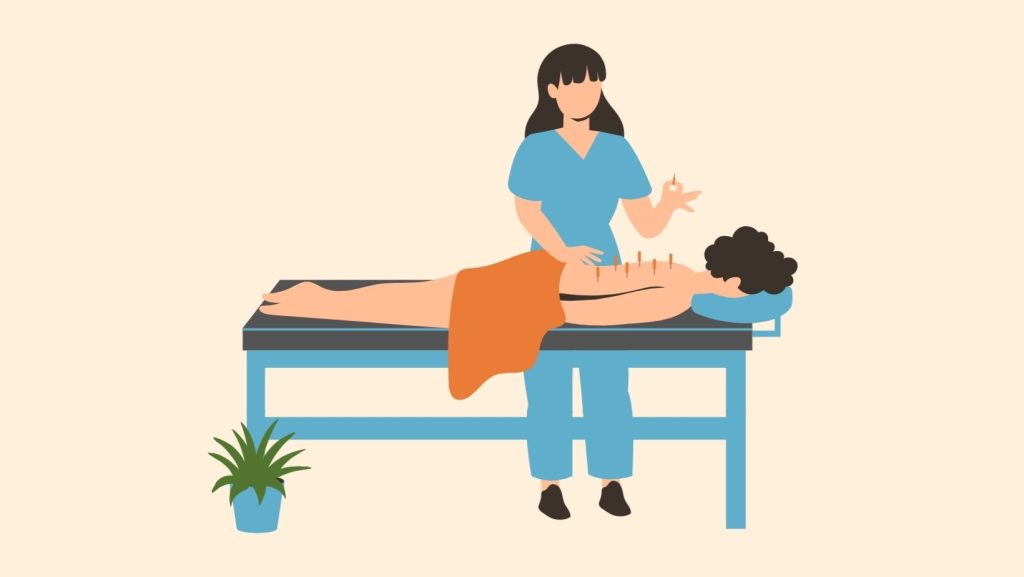Let’s Get to the Point of Dry Needling

In the realm of physiotherapy and pain management, a technique that gains a lot of enquiries is dry needling. As an adjunct approach to alleviating pain and enhancing muscle function, dry needling may be used as a complementary therapy offered at Queensland Physiotherapy. Let’s delve deeper into this technique and understand how it can benefit those seeking relief from various musculoskeletal issues.
Exploring the Essence of Dry Needling
What Exactly Is Dry Needling?
Dry needling is a therapeutic technique that involves inserting thin needles into the skin and muscles, targeting trigger points or areas of tension. Despite similarities in its application, it’s important to differentiate dry needling from acupuncture. While both use the same thin needles, the philosophy and techniques behind them are distinct. Dry needling is rooted in Western medicine and focuses on releasing muscular tension and addressing neuromuscular issues, whereas acupuncture is a component of Traditional Chinese Medicine that revolves around rebalancing the body’s energy flow.
Why Is It Called ‘Dry’ Needling?
The needles used with this modality are fine, short (though length and thickness can vary depending on the body part and technique used), stainless steel needles that don’t inject fluid into the body, hence the word ‘dry’. On the other hand, ‘wet’ needles would be anything containing a substance such as a vaccination, local anaesthetic, Botox or cortisone steroid injection etc.
How Does It Work?
The primary objective of dry needling is to stimulate specific trigger points to release tension and reduce pain. The insertion of the needles prompts a local twitch response, relaxing the muscle and improving blood flow to the affected area. Additionally, it can aid in disrupting the pain cycle by altering the way the body perceives and processes signals resulting in pain, helping to promote natural healing processes.
The Benefits of Dry Needling
Pain Relief and Muscle Function Improvement
One of the primary reasons patients seek dry needling is for pain relief. Whether it’s chronic pain or acute discomfort as a result of sports injuries or musculoskeletal issues, the technique has shown positive results in alleviating various types of pain. Additionally, by addressing muscular tension, dry needling can significantly enhance muscle function and flexibility, promoting better movement and overall performance. It has also been shown to improve sleep and relaxation which can optimise recovery.
Complementing Traditional Physiotherapy
Dry needling often serves as a complementary treatment alongside traditional physiotherapy practices. While physiotherapy focuses on exercises and stretches to rehabilitate injuries or conditions, dry needling can target specific areas with more precision, supporting the healing process and enhancing the effects of other therapeutic interventions.
While dry needling can result in a reduction of pain, improved muscle length and flexibility, it is most important to remain vigilant with the exercises prescribed by your Physiotherapist. This temporary reduction in symptoms provides a window of opportunity to get the most out of your exercise therapy.
Our Approach at Queensland Physiotherapy
At our physio clinic, we understand the individualised nature of pain and physical rehabilitation. Our team of experienced physiotherapists, all trained in the skill of dry needling, ensures a comprehensive approach to address your unique needs. We begin with a thorough assessment to understand your condition and create a personalised treatment plan that may include dry needling as part of the holistic approach to your care.
Remember, while dry needling has shown promising results for many, it’s crucial to consult with a qualified physiotherapist to determine if it’s the right approach for your specific condition. Give us a call or book online now to see the friendly and experienced team at Queensland Physiotherapy to see if dry needling may beneficial for you.




